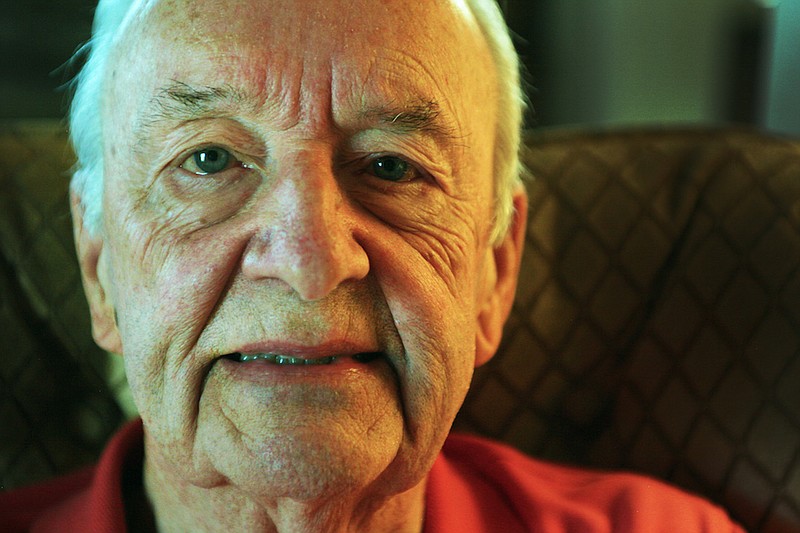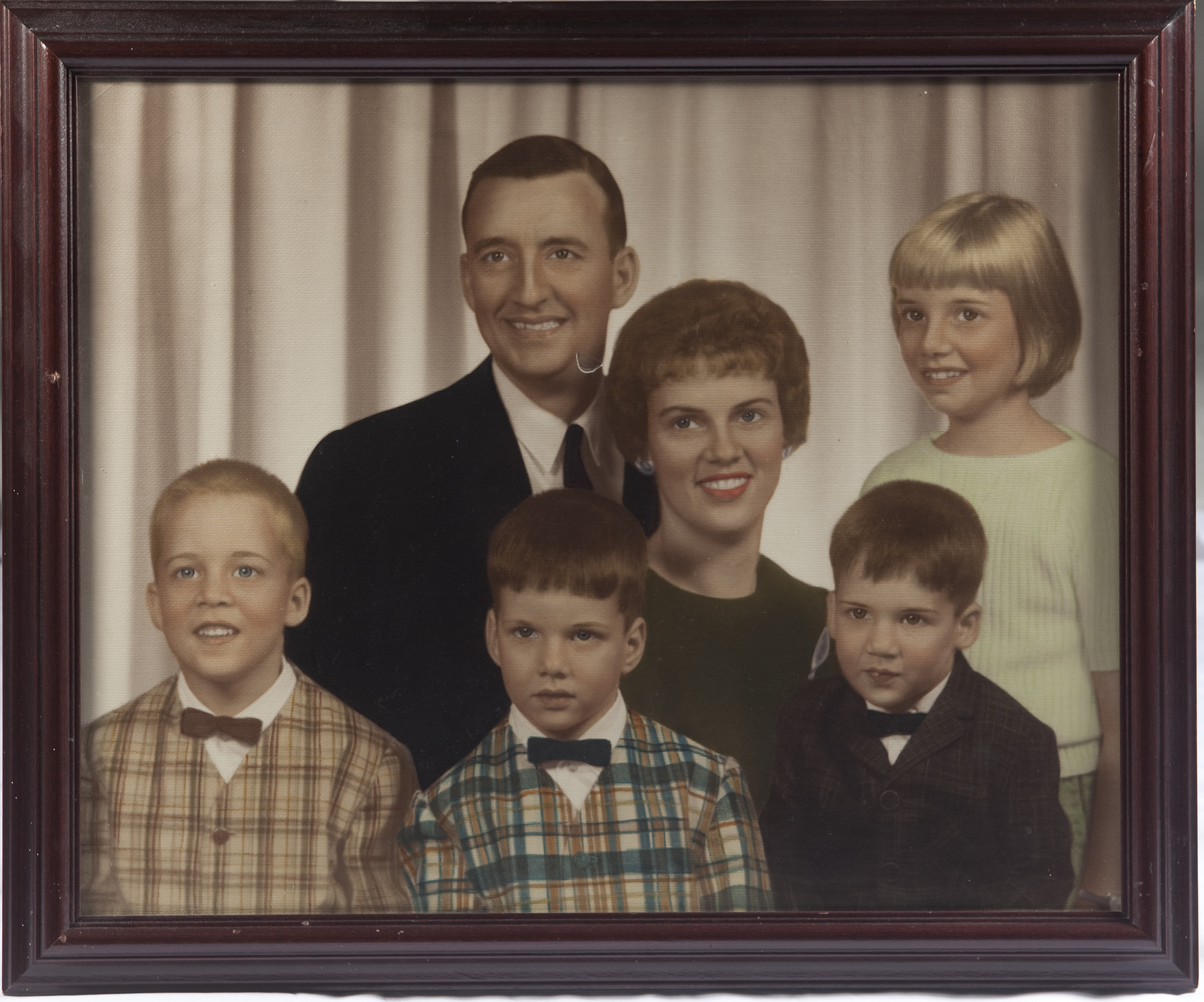Seven years ago, the nation watched Matt and Frances Nevels go back to church.
The Chattanooga couple were back in the pews after 20 years away from Red Bank Baptist Church, a place where Matt had served as minister of education. They left two decades earlier after their son Stephen told them he was gay and a year later died of complications from AIDS.
Their return to the pews in Red Bank made the front page of the Times Free Press and the story was republished by news organizations across the country, including MSNBC. For many, the Nevels' story ended that Sunday morning on a hopeful note. Matt was back in the house of worship that had been a mainstay in his life, despite decades of disagreeing with the Baptist stance on homosexuality. He returned.
But the uplifting feeling of that moment did not last long. Early in the service, the pastor stood and told the congregation the church stands with the Baptist belief that homosexuality is a sin. Everyone rose in a standing ovation. Everyone but Matt and Frances, Matt said.
(Read more: A tempest in my soul: A son's secret brings a Southern Baptist minister to his knees)
He was hoping the family and the church could reconcile. The Nevelses never went back, he said.
"Our position was, well, we cannot continue to worship in a church that would not accept, if our son were still living, he would not be welcome," Matt said.
Get free HIV testing and treatment
Cempa Community Care (https://www.cempa.org/) offers free HIV testing, treatment and support to anyone age 15 and over. Cempa also operates a mobile clinic in rural communities across Southeast Tennessee. Testing is available Monday through Friday at 1042 E. 3rd St., Suite 200, Chattanooga, TN 37403. Call 423- 207-5831 to schedule an appointment with the mobile clinic.
In some ways, a lot has changed for Matt in the seven years since that Sunday in 2012. Last year, his wife Frances died. The now 85-year-old is again attending a church, but one he finds more accepting. In other ways, little in Matt's life has changed. He remains a leading voice for LGBTQ issues in the community, regularly counseling individuals and families navigating a topic that remains stigmatized in the Christian church.
The same could be said about HIV.
On World AIDS Day, 31 years after the annual observance began, the virus is no longer a death sentence. With early diagnosis and the help of modern medicine, people can live a normal lifespan and not transmit the virus to others. However, high rates of HIV persist in parts of the United States and other countries.
The South made up more than half of the new HIV cases in the U.S. in 2017, according to the U.S. Centers for Disease Control and Prevention. Tennessee, despite having a rate of new diagnoses higher than most other states, remains one of the lowest in number of cases in the region. The South and West are the two sections in the country that remained stable in the number of new diagnoses since 2012, according to the CDC. All other regions experienced a decrease.
Shannon Stephenson, CEO of Cempa Community Care, a local organization offering treatment and support along with free testing, said more than 90% of the patients the organization serves take medicine to suppress the virus to the point where it cannot be transmitted to others. In July, Cempa launched a mobile clinic to treat hepatitis C and HIV in the areas surrounding Chattanooga.
Cempa is focusing on reaching groups, such as people in the African American and Latino communities, in Chattanooga that have historically been underserved with HIV education and are disproportionately impacted by the virus, Stephenson said in an email. A 2017 report by the health department found 44% of people living with HIV in Hamilton County were black, despite making up 20% of the county's population.
Matt said being open about the struggles his family faced advocating for his son not only honored Stephen but opened up important conversations in the community. Early in the HIV/AIDS crisis, the LGBTQ community was heavily stigmatized, despite the virus affecting everyone. For a while, the Nevelses were the only ones in the area talking about these things, Matt said.
"Because of the fact that we were open said to the general populace of Chattanooga that here are parents that have a gay child and they still love that gay child and support him," he said.
In 1993, a year after Stephen died, Matt helped found the Chattanooga chapter of Parents Family and Friends of Lesbians and Gays. He is still active in the group as the vice president. By his estimate, several hundred people in the area have benefited from the organization.
LGBTQ rights have come a long way since the early 1990s, Matt said. Residents have marched city streets asking for LGBTQ equality. The latest annual Pride celebration in Chattanooga was the biggest he has seen. Same-sex marriage is legal. But there is still much work to do on both topics, he said, especially in houses of worship. This year, Chattanooga received a score of 45 out of 100 on the Human Rights Campaign annual analysis of LGBTQ support in cities. The city lost the majority of its possible points because it does not have gender or sexual orientation non-discrimination laws in place.
READ MORE: LGBTQ and Christian: Chattanoogans talk about how faith plays a role in their lives
For most of the 2000s, Matt served on the staff at Pilgrim Congregational Church, where he led same-sex weddings, though they were called "holy unions" at the time since the marriages had not yet been recognized legally. Matt has married so many couples he lost count, he said.
By the time his story ran in the Times Free Press in 2012, Matt said, he thought it was all old news. The response - letters from around the country, people in the community asking for his counsel - showed him it was not and it still is not, he said. About six years ago, Matt became a regular at St. Elmo United Methodist Church, a house of worship long supportive of and supported by the LGBTQ community. The Methodist Church is on the verge of splitting over discussions about what rights LGBTQ people can have in the church.
He is proud of being able to help people in the LGBTQ community understand being who they are does not mean God does not love them, and helping family members see the same thing, he said.
"You got to love your kids the way they are," Matt said. "We still got issues there, but we are making progress every year."
He cannot change the past, but much of the advocacy work he does now is the kind of help he would want Stephen to have if his son were alive today, Matt said.
"I choose to believe that it was in God's plan the way it worked out. And it's OK that way," he said.
From the reporter
I became a journalist to help people see people as people. But highlighting the human side of every policy decision, and how it is affecting your community, takes time as well as support from readers. If you believe in telling the stories of people in your community, please subscribe to the Times Free Press today. Contact me at wmassey@timesfreepress.com or 423-757-6249. Find me on Twitter at @News4Mass.

